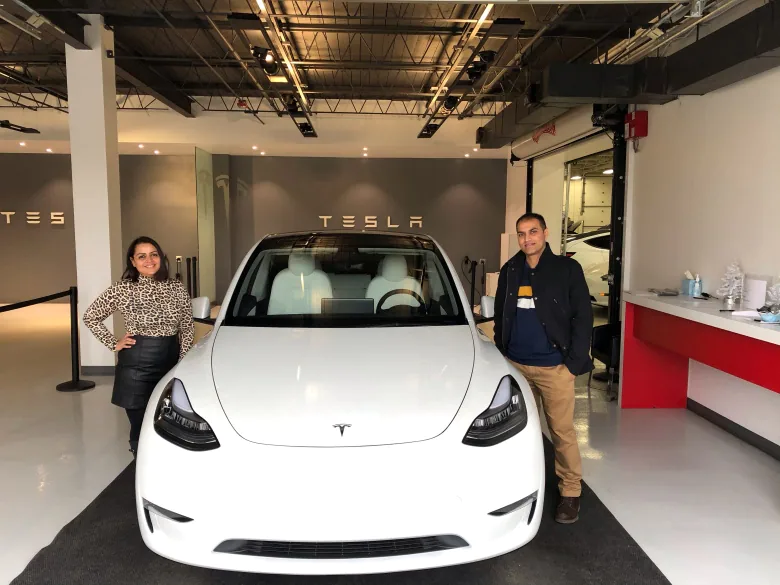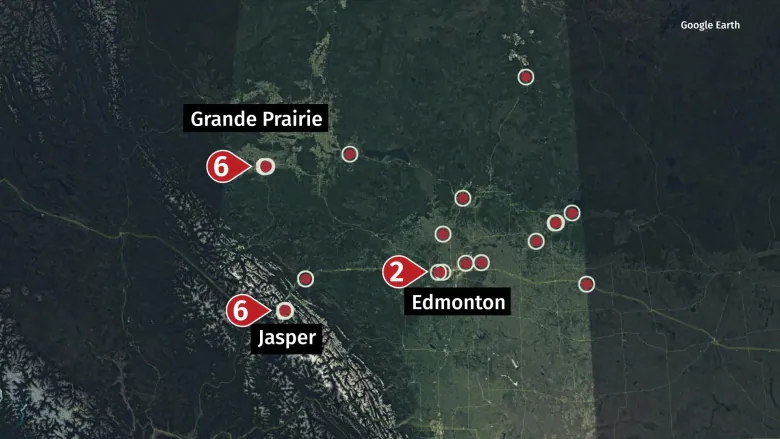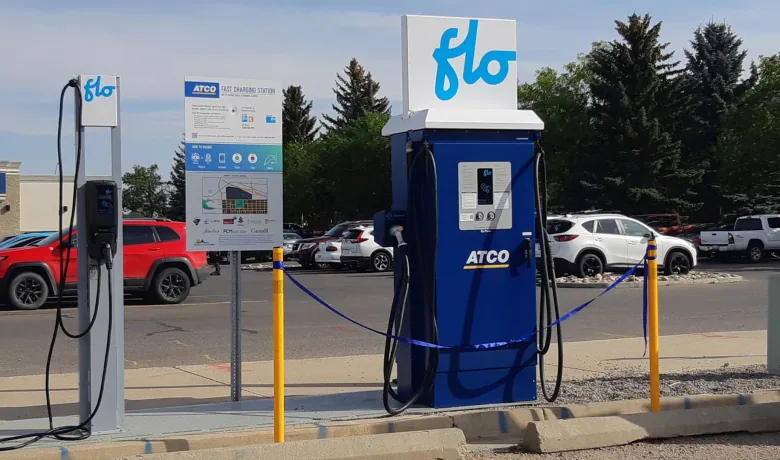The introduction of Ford’s new all-electric F-150 Lightning truck has some Albertans looking at whether electric vehicles might work for them, but the lack of charging stations might continue to be a turn-off.
The F-150, set to hit the market in 2023, is one of several electric trucks and vans that could appeal to Canadians who use their vehicles for work or recreation.
Despite the hype, there are still concerns about whether there are enough public charging stations to keep the batteries going for extended travel.
Those who already own electric vehicles (EVs) are familiar with the challenges.

Chandresh Patel is a new Tesla Model Y owner who lives in Fort McMurray and works in the oil and gas industry. He loves his car and regularly uses it for daily commutes in and around the community.
“But I also have another vehicle for the longer travels down to the south,” Patel said.
That vehicle has an internal combustion engine powered by the fuels Patel works to extract from the ground for a living. He’d like to ditch it and go full electric but that’s not practical — yet.
“When I drive from Fort Mac to Edmonton, which I have done a couple of times, there is only one charger on the way, in Athabasca,” he said.
That charger is off the main highway and it’s not a fast one, meaning a recharging stop of up to three hours, he said.
“It would be a huge difference if there was a Tesla Supercharger or a DC fast charger,” Patel said.
Those types of fast chargers, which would cut wait time to less than 30 minutes, are few and far between in Alberta.

On the highways north, east and west of Edmonton, there are only about two dozen chargers in total.
Andrew Batiuk with the Electric Vehicle Association of Alberta says it’s a chicken-and-egg kind of problem.
“EV infrastructure is not inexpensive and it’s not super-easy to deploy, so people don’t want to invest in it until there’s a reason to do so — and that reason is having EVs in the marketplace,” Batiuk said.
“But then those owners of those potential EVs want to be able to travel, and they don’t want to get that vehicle until they can travel. So you do get into this interesting situation of which comes first — the EV and the ownership of it or the charging network that supports it.”
Companies that operate the charging stations appear to be taking notice of the increasing demand and interest in EVs.
FLO, the Quebec-based company that calls itself Canada’s largest electric vehicle charging network, plans to expand, said Michael Pelsoci, the company’s Western Canada sales director.
The company already has 114 public charging stations in its Alberta network, including 26 with fast chargers.

“FLO expects to have more DC fast chargers on the network in northern Alberta, working with Epcor, in addition to new stations along Highway 16,” Pelsoci said. “The key for successful mass adoption of electric vehicles is to build a charging infrastructure that is always one step ahead in its development.”
Atco, which has been involved in the design, construction and operation of more than two dozen stations in Alberta, said it doesn’t have current expansion plans but continues to explore potential opportunities around the province.
Six Petro-Canada charging stations in Alberta are part of its coast-to-coast EV fast-charge network. A spokesperson for Suncor, which owns Petro-Canada, didn’t provide specifics but said the company is looking at sites for future opportunities.
